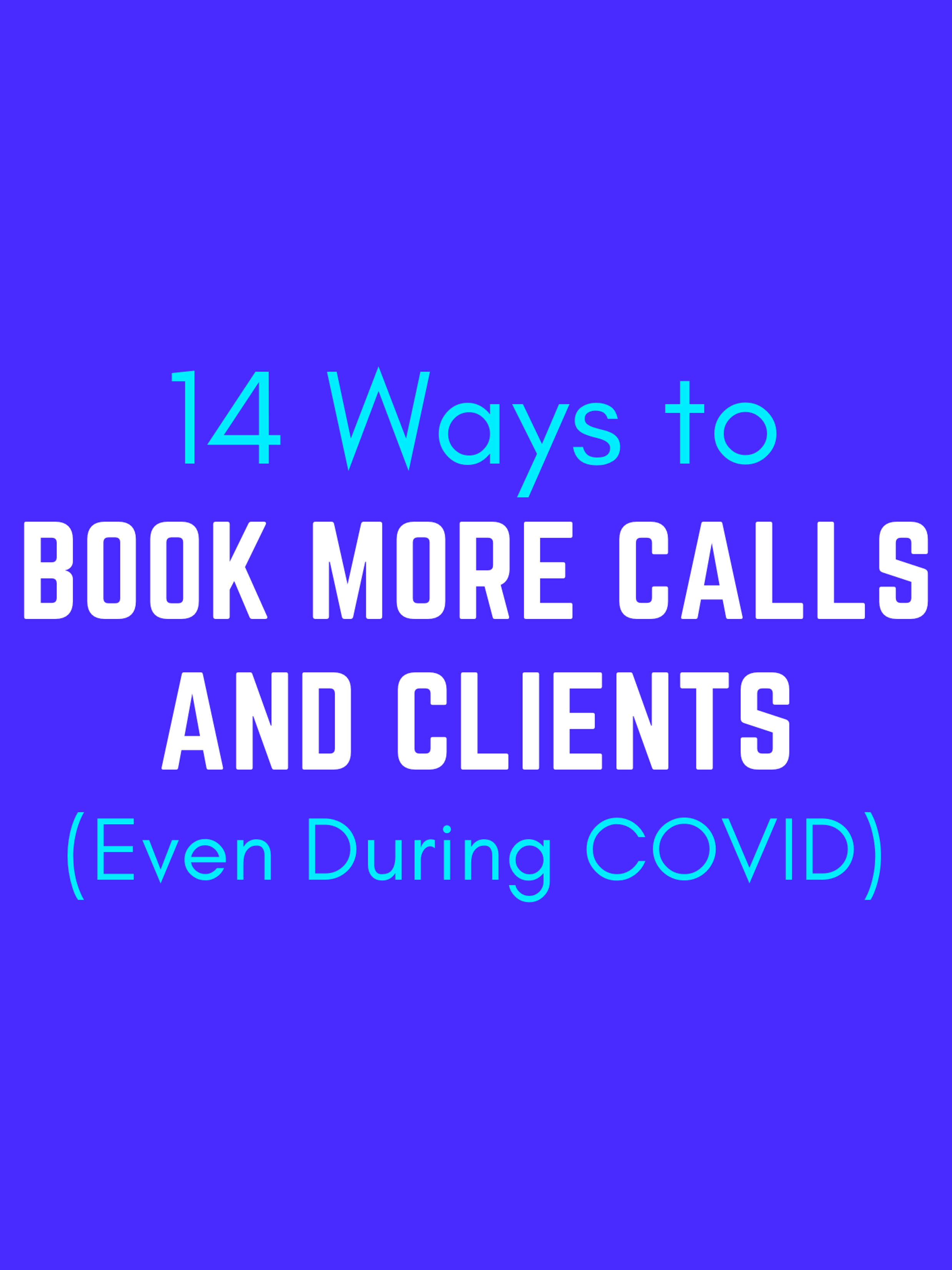If you’ve got a niche (and I mean a well-defined niche), then your chances of growing and scaling are infinitely better...The reason businesses fail to grow is often because they fail to identify a specific market and stick with it.
Michael Killen
From Single to Scale
If you're reading this post, then you've probably heard a million times that your niche is everything, and/or that "the riches are in the niches." Well the tales are true, and in this post, you'll learn more about why niche-selection is so important as well as HOW to brainstorm, narrow down and choose your own.
Not too long ago, it actually paid to be a generalist. If you owned a shop or business in a small town, or even in a big one, you simply didn't have the volume of foot-traffic to merit only selling one thing.
However, today, you don't have to look far to see that a brain surgeon makes much more than a general practitioner. The same applies to specialist mechanics, consultants, fitness trainers, and just about everything else. In every field, the specialists make more money and are in higher demand.
The point is that there are countless reasons and benefits to specializing your business and/or area of expertise, so let's discuss some ways you can narrow down and choose yours. Keep in mind that some people take years to finally choose their niche, but remember that the main obstacle is simply fear.
Don’t dismiss any category that interests you, today the riches are in the niches.
Scott Fox
Click Millionaires
Mindset
21) But MY Business is Different!
I’ve spoken with tons of entrepreneurs and marketers about the importance of niche-selection books, and/or after listening to a [conference] speaker discuss the importance of niching down.
Their heads nod in agreement throughout the conversation and speeches, but then afterwards, they always seem to rationalize why THEY are in a unique position, or field, or market where niching down wouldn’t make sense. In other words, "I'd love to niche down, but MY business is different!"
I'm somewhat sorry to report that, in fact...NO IT ISN'T. Even today, with all the books, articles, and content around niching down and its importance, the wide majority of businesses, entrepreneurs, and marketers are still vehemently resistant to it. This makes it clear it’s a mindset thing.
The number #1 reason businesses are resistant to niche down is that they fear and/or simply don’t like the idea of excluding market segments that they can serve, or help, or sell to. Even though 90% of the things they themselves buy are niche-positioned products, they can’t just bring themselves to do it.
"But my business is different!" is the rallying cry of the poor. Creative adaptation is the behavior of the rich.
Dan Kennedy
No BS Price Strategy
20) Top Enemies of Niching Down

DON'T keep these enemies close
The top two reasons/excuses that get in the way of business owners niching down are:
1) "But I don't want to turn down any customers!"
2) "But I have too many niches to choose from!"
One of the biggest obstacles to global business growth is the fact that many (new) entrepreneurs can't make psychological peace with the idea of turning away customers who could or would buy.
I can write a book about this (and I might) but I'll sum it up with the fact that a mechanic that specializes in (as in ONLY works with) Japanese sports cars will make more money and be in higher demand than a general mechanic, even though the general mechanic could do just as good of a job.
The same could be said of dog groomers, hairdressers, life coaches, and everything else. If you have an Apple computer, or curly hair, or a Harley-Davidson motorcycle, then you'd probably prefer and pay more for services from providers who specialize in that thing, even if a generalist could do the same job.
We'll address the "too many niches/interests to choose from" throughout the rest of this post.
Instead of being a small fish selling a product or a service in an enormous pond where you have no ability to stand out or command pricing power, you create a much smaller pond where you are the only fish.
Bruce Stachenfeld
Build a Power Niche
19) Hoses and Nets
One last psychological note here...Every business on earth aims to sell a specific product to a specific type of person (or should). However, if you target "everyone", then you're basically using the "mist" setting on your hose nozzle, when you'd be much better served by setting it to a concentrated jet.
Yes, the mist setting may reach a wider area, but your goal is to get things wet (make money), and NOT to reach the widest possible area. Plus, the mist may get blown away by wind, and relies on luck.
This also means that the more generalized you are, the more strength, skills, luck, and resources you'll need to have in other areas. Yes, you have a bigger fish-catching net, but with bigger holes in it.
Choosing a niche is not something you HAVE to do; it's something you GET to do, which provides massive benefits that entrepreneurs of the past (and present) would kill for.
18) Beware Your Passions
Given we all still possess ape/lizard brains, if everyone did "what they loved", then tons of people would eat junk food, have sex, watch TV, and post selfies all day. As you already know, many people DO, in fact, follow their passions and do these things all day, but 99.9% of them don't get paid to do it.
I’m not saying that you should disregard your passions. After all, making it in any business is tough, and there are definitely benefits, reasons, and advantages to choosing something that can sustain your motivation when the going gets tough, which it inevitably will.
What I AM saying is that while your passions do play a role, there are several other important factors to consider when choosing your niche. Here are some risks of "following your passion“:
1) There may be no market for it. Just because you are passionate about underwater basket-weaving, or space travel (like me), doesn’t mean it’s a good market to go into. You will have to balance your passions with practicality, with market demand, and with who you can actually help most, or at least enough. The absolute most important factor is delivering value people will pay for.
2) Passions overlap across all people. Oh, you’re passionate about traveling, food, or your kids? You and 90% of the world. You could argue that that’s exactly why those are great niches to go into, but it also means that you'd better be ready to face stiff competition, UNLESS you pick a narrow sub-niche.
3) Passions change. Often. I’d personally guess many-to-most passions change around every 3-5 years, but this is my very unscientific observation, and can vary. In any case, be careful with what you are passionate about today because there’s a decent chance you won't be passionate about it next year.
17) Competition

In perfect competition, everyone loses -Peter Thiel
While the experts disagree on many things, competition seems to be one of their biggest disagreements, with half saying you should innovate, and the other half saying you should model what is working. For this particular stage of your research, it is good to see at least some indirect competition.
If you want enter the model train niche, it's good news if there are best-selling books on the topic, with lots of reviews. Even though there are established players in that niche, it shows that there is a large enough and passionate market, who is willing to buy, and means you can carve out a sub-niche.
However, if you want to enter the elephant-training niche, but you find zero books and zero courses even related to it, then that would indicate that there is not much of a market demand for that topic. Remember that it’s not (only) about what you’re most passionate about, it’s about what people is willing to trade their money for.
You probably can't actually control all of your competition. But you are in total control of the strength of your proposition.
Dan Kennedy
No BS Price Strategy
Research
16) Your Business Model
We will focus on niches for information products, and expert businesses as whole, such as authors, consultants, course creators, and the like.
Niche research and selection are different for every type of business, so even while a few general factors apply across the board, the fact is that the quality and success of a niche heavily depends on the type of business you are taking that niche to.
This means that the niche research and selection processes will be (slightly) different for expert businesses, agencies, physical products, affiliate marketing, professional careers, and more.
I would say that there is around a 75% overlap of niche-selection strategies between all business types, but we will focus on niche selection for personal brands and expertise-based businesses.
15) The Three Strategies
When it comes to finding your niche, there are three primary strategies.
1) Is to create your own niche and own it. This may involve inventing a new product, or staking your claim into a virgin sub-niche, but the point is to find or create an unmarked niche and be first or early to claim it as your own. Learn more about this idea in books such as Blue Ocean Strategy and Zero to One.
2) The second strategy is to identify/predict an UPCOMING niche and get in early on it. This strategy is less about CREATING a niche, and more so about being the first or early to catch one of the endless upcoming trends/waves as it arrives.
3) The third strategy is unfortunately the most common which is to copy someone else's success. Canteens are in? I'll do that. Wooden toothbrushes now? I'm in. Standing desks? Sure, that'll work.
To be fair, if a market is big enough, or growing, then it can support multiple high-profit players, but your path will be up-hill and limited, and I’m a fan of least-resistant paths.
Again, there are even more strategies for physical products, agencies, and other business models.
Instead of being a small fish selling a product or a service in an enormous pond where you have no ability to stand out or command pricing power, you create a much smaller pond where you are the only fish.
Bruce Stachenfeld
Build a Power Niche
14) Health, Wealth, Relationships
Smart marketers learned long ago that just about every business falls into one of three categories which are: health, wealth, and relationships. However, I'd also add hobbies/entertainment as a fourth.
The point is that you should identify early on which of these categories you fall into, or that calls your attention most, because each one is a whole different world. Million/billion-dollar business succeed every year in each of these categories, so there is no better or worse option, but only preference.
Remember that this mainly has to do with marketing, so while pencils, razors, and/or Chapstick may not seem to fit into any of these categories, how you position and sell them is what's up to you.
13) Start With a Massive Brainstorm

Get all your ideas down on paper
When it comes to strategies to choose your niche, there is no shortage of inspiration sources, if you know where to look. Now we are going to review some sources for inspiration of topics you may want to become and expert in, create products for, and grow your business around.
Even if you had a life-transforming experience when you walked through a shoe museum, and now you know you want to become a shoe expert, everyone should take the time to physically sit down and write out a brainstorm of similar and unrelated topics that they may want to pursue for their business.
You may end up sticking with the shoe topic after all, and that’s fine, but it’s very important to at least know and consider your options.
If you sat down and listed all the things you have learned and experienced in life and business, you would find that you know a lot.
Brendan Burchard
The Millionaire Messenger
12) Who You Can Help
Your 1st question should be “how/where can I add value”, and then “what are my passions?”, and not the other way around. In any case, how can you help people?
The first step in assessing who you can help is by going back to using one of my favorite tools, which is the brainstorm. This will be somewhat of an organized brainstorm, but here are a few questions to PHYSICALLY WRITE DOWN your answers to get your creativity and ideas flowing. Aim for AT LEAST 10 ten answers for each question and write them down.
1) What are you interested in? I know I just went on what seemed like a big rant against passions, but it was actually more of a warning against blind, optimistic pursuit. Plus, this is just a starting point, of many points to come. In any case, make an exhaustive list of the things that interest you now, and in your past.
You can review:
-your bank or credit card statements from the last 2+ years,
-your amazon purchase history from the last 2+ years,
-your YouTube and Netflix watch histories and “watch later” folders,
-your bookshelf (+topics),
-your browser history, google searches, and bookmarks,
-everything in your room/office,
2) What can you do that other people can’t? Everything above tying your shoes and downing a pint of ice cream in one sitting is fair game here. This could include building websites, fixing broken pipes, running a marathon, resolving conflicts, finding cheap flights, playing tennis, driving an 18-wheeler, or literally anything that your mom, neighbor, or cousin probably can’t do.
3) What have you done, that (most) others haven’t? This is a similar question, but it is different. This could include passing an exam, giving birth to octuplets, running a restaurant, building a computer or car, making ice sculptures, and any other skills that would lead people to potentially admire you. Remember that the harder it was for you to do it, the more you can help those who come after you.
Look creatively at your life resume , experience, and hobbies for niches you can explore as an “expert”.
Tim Ferriss
The 4-Hour Workweek
11) Your Market & Audience

There can be no business without a grasp on your audience and/or customers
A lot of marketers will probably come out with pitchforks right about now, arguing that your target customer should be the absolute first thing you consider when starting a business.
Keep in mind, all of these steps are part of the same brainstorm, whose goal is simply to throw absolutely everything on the wall, and then connect dots afterwards. That being said, your target customer and market are crucial factors to consider when choosing your niche for obvious reasons.
Here are some questions to ask yourself about who is going to fund your upcoming success.
Who is my ideal customer? If you could wave a wand and choose any type of person to be your customer, who would they be? What does their average day look like, what are their fears and goals, and what are they already spending money on? One thing is for sure, however, and that is that your ideal customer is NOT everyone, regardless of how universally useful your offering is.
Where does my audience go to solve their problems (buy stuff)? This question seeks your market (place), rather than any single customer type. While it's great to focus on a single customer, your actual customers are likely to include different buyers with different goals.
10) Your Everyday Problems
Another great source for niche ideas is your own set of daily problems. Ask yourself what your biggest current challenges are. Then, think back to what they were this month and this year. No matter how obscure you think those problems were, there are large audiences begging for help to solve them.
Everyday life is a goldmine of ideas/problems, so consider "scratching your own itch" as one direction you could go to niche down.
9) Determine Profitability
An undeniable factor to consider when choosing your specialization is profitability. This doesn't mean that reaching absolute maximum profit is the goal, but that there is at least ENOUGH to be had.
If you're torn between going into business in cyber-security and basket-weaving, it shouldn't take you that long to decide. Plus, once you make it in cyber-security, then you can weave as many baskets as you want.
So yes, profit isn't everything, but it is a big something, so keep in mind when choosing your niche.
Price integrity and profitability in a business are very fragile assets. They are unable to protect themselves. They need a big, strong, defender. That defender has to be you.
Dan Kennedy
No BS Price Strategy
8) Pain and Passion

People are much more likely to take action when there's strong emotion involved
Pain and passion might seem like opposites, but they are two sides of the same coin, in that people feel very strongly about moving toward or away from them. That's the type of niche you want.
When we look to "the big 4" market of wealth, health, relationships, and entertainment, there is no shortage of sub-niches of people who desperately want more or less of something.
Some people tend to interpret helping those in pain as "taking advantage" of them, but this isn't the case at all. Dentists, locksmiths, and laptop repairmen all solve legitimate high pain-points.
And as for the passion side of the coin, your goal is to find an irrationally passionate audience such as pet owners, sports fans, car collectors, golf enthusiasts, and many more. These people simply can't ever get enough content or stuff related to their passion. So give it to them.
7) Niche Validation and Research
Now let's look at some tools available to you to validate and further research your top niches.
Google: Google and their collection of tools is probably your best single resource niche research. Top search results and auto-suggest are simple but powerful tools that give you a pulse on the market.
They also offer Google Trends, Google Keyword Planner, Google Alerts, Google Insights, and more. For the sake of time, I can’t go into detail on each tool, but these are all tools that essentially let you see under the hood of what’s going on with google searches, and across the internet.
Forums & Groups: These are any online communities of people who share an interest and who can communicate with the entire group.
The biggest players here are Reddit and Facebook groups, but many niches have their own private websites and communities as well. Your goal is to join these groups/communities and see what they’re talking about and what typed of content get engagement.
Make note of new ideas, and of recurring problems and frustrations that people have, and how they community helps them to solve those issues. Jot down any interesting niches that you find or that come to mind as you scroll through these posts, responses, and reactions.
History, Trends, & Foreign Markets: Back to Google for a minute, one great way to find ideas is to simply Google “history of (your topic)”, as well as “(your topic) trends.”
If you’re able to travel or you have friends or family in other countries, ask them what's popular there. These are three great sources of ideas that are accessible to everyone with a little bit of research.
Reviews: Another effective source of inspiration are reviews. For example, if you’re considering entering the weight-loss space, find some popular physical and information weight-loss products, and check out the review section.
Keep in mind that many online reviews are either 1) trying to sell you that product as an affiliate, or 2) writing an angry review because they were too lazy to complete the program.
That aside, pay attention to the exact wording of the legitimate positive and negative reviews. Jot down what a lot of people seemed to like and dislike
Marketplaces: Next, you have online marketplaces such as Amazon, Udemy, or any other online marketplaces full of buyers and sellers.
Are there a lot of books on your topic, and do they have a lot of reviews? Are they written by a variety of authors or just a few? Does Udemy have a popular courses on your topic?

Sign up for The 14 Ways to Book
MORE Discovery Calls and Clients!
Narrowing and Choosing Your Niche
6) Niche Down, At First
One more obstacle that stops people from specializing is the fear that they will be stuck forever in a niche that is too small or that they (grow to) dislike.
While that's an understandable fear, the truth is that your entrepreneurial path actually become much easier if you start specialized, and then expand.
For example, UGG boots started out as specifically for surfers, and then expanded to basic bitches everywhere. RX bars started as specifically for cross-fitters, but now they are sold everywhere.
The point is that it's actually MUCH easier to lay claim to a small sub-market, and then expand, than it is to go straight to the mass market, which is what most new businesses try (and often fail) to do.
Your first idea/niche doesn't have to be a moonshot. In fact, you should make peace with the fact that you will probably shift or pivot from your original idea to one that suits you better, and that's ok.
Startups should start in small markets, and then expand
Peter Thiel
Zero to One
5) Final Selection - The Gauntlet

You're aiming for a clear blue ocean, and not a bloody red one
That is one heck of a niche brainstorm you got there. You’ve included your skills, your accomplishments, your past struggles, your target audience, your target marketplaces, and more.
Now, you are just about ready to complete phase 1 by reviewing your brainstorm and looking for common, valuable, and/or potentially profitable trends.
You're also looking out for the topics you are most qualified to teach, with a reasonable amount of passion, that will provide value to the most people. You should be able to narrow your over-arching niches down to 3-5.
Here are some questions to ask yourself to get started:
1) Experience aside, which topic interest you most? Similarly, which customers do you like most and/or have the most in common with?
2) Which markets have the most pressing needs (most immediate and urgent problems)? Are they used to paying high prices for solutions?
3) What is the rate and ease of change for the topic? For example, the rate of change in construction or anything with a bureaucracy is extremely slow while the rate of change in technology is lighting fast.
4) How many alternatives solutions are there for this solution?
5) How easy is it to find congregations of customers and buyers?
6) Who's already in that space? What are they selling, at which prices, and with which business models?
The challenge is to successfully identify, out of the haystack of possibilities that exist, commercially compelling blue ocean opportunities.
W. Chan Kim
Blue Ocean Strategy
4) Your Value Statement
A great exercise to narrow down your niche is to fill in this statement:
"I help 1 s to 2 by/with/through 3 ".
The numbers are to be filled-in and they are ranked in order of importance. "1" is the "who" you help, and is hands-down the most important factor to identify. "2" is the "what" you help them to do or achieve, and "3" is "how" you help them reach that desired end result. 1 and 2 are all you need in a pinch.
You value statement should be clear enough that a SPECIFIED audience can raise their hand and say "that's me." This exercise may seem easy and simple, but I've spent hours and even weeks working with businesses to finally nail down who it is they help to do what. So don't feel bad if it takes time.
A BAD example is "I help people to lose weight with personal training." Remember your goal is to be SPECIFIC, and NOT to reach the widest audience. Here are some better examples:
"We help [software companies with $1,000,000+ in annual revenue] to [upgrade their low-tier customers] with [webinars and Facebook advertising]."
"I help [amateur runners] to [run their first marathon] with [high-altitude training]."
3) Opposing Competition

Make your competitors say the opposite
A very useful test to pass your value statement through is to ask yourself "would (most of) my competition say the opposite?"
For example, would most personal trainers claim that they (only) "help pregnant CEOs to maintain a healthy weight with yoga and stationary exercise"? I'd bet 99% of them wouldn't.
Or would most shampoo brands claim that they (only) "help balding men to regrow hair with coconut oil"? Again, I'd say 99% of shampoos would definitely NOT be willing to make this claim.
Your goal is to make sure that most of your competition would NOT be willing to share your claim. If most of your alternatives aren't willing to say the opposite, then you likely aren't niched down enough.
We want our competition to say the opposite to what we’re saying.
Michael Killen
Five Figure Funnels
2) Creating vs. Tapping Demand
Henry Ford famously said “if I would have asked my customers what they wanted, they would’ve said faster horses.” He then transformed the transportation industry and the world with the automobile and its accompanying market.
The point is that no one was asking for cars, and all market research we’ve discussed so far would have advised against it. You could say the same for the radio, the TV, the personal computer, the internet, the George Foreman grill, and many other society-changing inventions.
These were markets and products that no one asked for and that no one even knew they wanted. In other words, demand was created instead of simply tapped into, which is what is commonly suggested. I’m not saying you’re going to invent the next internet, but I AM saying that most of the time, people don’t know what they want.
Did people know they wanted butter in their coffee before Dave Asprey started selling millions of dollars worth of Bulletproof this and that? No. Did people know they wanted streaming media (Netflix) instead of going to the video store? Also no; they would’ve just wanted wider selection of VHS tapes.
1) Positioning
Positioning is not what you do to a product. positioning is what you do to the mind of the prospect...The most difficult part of positioning is selecting that one specific concept to hang your hat on. Yet you must, if you want to cut through the prospects wall of indifference.
Al Ries and Jack Trout
Positioning
Whether you are selling water or something that is truly unique, how you position your offering can make all the difference. Many well-positioned sub-par products have succeeded, and many high-quality and innovative products have floundered because of poor marketing and market positioning.
Although they are different steps, how you position your offering has a lot in common with how you choose your niche. Put simply, niche selection is which market YOU AIM to serve, while positioning is which market FEELS AIMED AT by your specific offer.
Volvo once positioned themselves as "safe", Apple positioned themselves as forward-thinking, and Nike positioned themselves as the top choice for athletes. Notice how none of these position statements mention quality or superiority. Instead, they laid a claim as the #1 choice for certain people.
At the end of the day, you can either position yourself or get positioned.
Summary
When you’re finding/choosing/creating your niche, know that there’s a fine line between crazy and crazy success. Remember that no matter what your niche is, it has to bring significant value and benefits to the lives of your customers.
It should provide them with a new opportunity and an increase in status, as they transform from who they were, to the legend they will be after buying from you.
There are exceptions to every rule/suggestion listed above, so it's your job to balance creativity, with elbow-grease and perseverance, with profitability and practicality. The rest is up to you.
If you want to get rich, own a power niche.
Bruce Stachenfeld
Build a Power Niche
This post contains affiliate links
